
As a casual music listener it’s easy to hear The Beach Boys’ sun-drenched hits, and conclude that the group were all beaches, girls and cars, and no substance. But the group was led by Brian Wilson, one of the most talented musicians of his era, with an ear for sophisticated chord progressions, studio arrangements, and vocal harmonies. Wilson worked in isolation, was deaf in one ear, domineered by his father, and strait-jacketed by a bubble gum pop image and a record company that expected three or four albums a year, Wilson overcame all of these obstacles to create some of the most transcendent music of his generation.
Introduction
The Beach Boys’ image as Californian surfers and party boys was a hindrance to Brian’s ambitions. Yet their complex harmonies were always a huge asset to his record-making, especially cousin Mike Love’s bass voice and his own gospel-infected tenor and gorgeous falsetto. His brothers Dennis and Carl and friend Al Jardine are also capable singers, each bringing their distinctive styles to their leads. Carl in particular had a gorgeous soulful tenor, and he’s the strongest individual singer of the group. Bruce Johnston came on board to replace Brian in the touring band in the mid-sixties.
The group’s rightfully acknowledged peak is 1966’s Pet Sounds, and there’s a sense of the group’s early records building up to this high point. Brian was disappointed when Pet Sounds sold fewer copies than its quickly tossed-off predecessor Party!, but set off to make an even more ambitious follow-up entitled Smile.
Collaborating with lyricist Van Dyke Parks, Wilson planned an album incorporating an Americana theme and an elements suite, with complex melodies, arrangements and orchestration. Faced with opposition from band members, especially Love who wanted the group to return to their earlier surfing material, a mental fragility exacerbated by drug use, paranoia when a local building burned down on the same day that he recorded the fire element of his suite, and devastated when The Beatles released Sgt Peppers, Wilson abandoned the project, and while he’s produced some worthwhile music since, he’s never again been the confident maestro that he was in his 1965-1966 heyday.
His decline allowed other members of the group to share the spotlight, and it made their post Smile albums a fascinating mess. Mike Love receives a lot of bad press, and I think it’s mostly justified. His crass lyrical ideas impede the group’s early albums, even if they are sometimes an important part of the early group’s identity, while he later stifled the group’s creative ideas and his songwriting contributions were often hackneyed. The group’s albums can be frustrating – there are plenty of great songs scattered throughout their albums up to 1973, and even deeper in, but you sometimes have to sit through some dross on their lesser albums. With Brian not usually a lyricist, he’s often dependent on Mike Love or on an outsider like Van Dyke Parks or Tony Asher.
There are at least four distinct phases of the group:
1961-64: The Beach Boys’ early albums are spotty but often charming.
1965-66: Brian Wilson was at the peak of his powers, and Today!, Pet Sounds, and the Smile material are generally acknowledged as the group’s high points.
1967-73: With Wilson no longer able to contribute material consistently, the group became more democratic and less polished. Dennis Wilson, Carl Wilson, and Bruce Johnston all emerged as songwriters, and there’s a lot of good material scattered on these albums.
1974 onward: the success of the compilation Endless Summer made The Beach Boys primarily into a nostalgia act, even though there are still interesting studio recordings, particularly 1977’s Love You. At some point, Mike Love took the group over altogether, and he and Bruce Johnston now tour as The Beach Boys.
I’ve covered most of the group’s 1960s and 1970s albums, but I’ve skipped a few that I’m not as interested in.
The Beach Boys Album Reviews
Surfin’ Safari
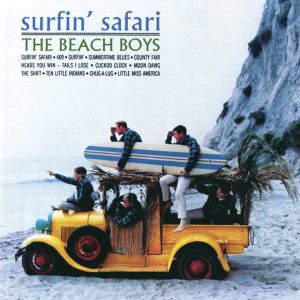
1962, 4/10
In the early 1960s, pop LPs were unambitious, largely following the singles and filler formula. The Beach Boys’ debut is no different – the single ‘Surfin’ Safari’ is a standout on their debut album. To their credit, there are few covers on their debut – most tracks are written by Brian Wilson along with Love and producer Gary Usher. While Nik Venet is credited as producer, Brian Wilson had already taken control of the studio. Surfin’ Safari is primitive compared to their later work, but their vocals already shine. Al Jardine was temporarily out of the band after playing on debut single ‘Surfin”, so David Marks is on rhythm guitar and vocals.
Along with ‘Surfin’ Safari’, its b-side, the hot rod song ‘409’, is another highlight. The cover of ‘Summertime Blues’ is also strong – the group harmonies shine on a song that’s more sophisticated than what the group were writing at the time. ‘Heads You Win – Tails I Lose’ manages to work the lengthy word “arbitrarily” into its lyrics. There’s material that wouldn’t pass muster decades later – ‘Ten Little Indians’ is an adaptation of the counting rhyme, while the cover of Herb Alpert’s ‘Little Girl (You’re My Miss America)’ with its idealisation of blonde hair and blue eyes. Even in a brief 24-minute LP, there’s filler – even though Carl’s surf guitar and the group’s vocals are impressive, ‘Moon Dawg’ is insubstantial.
The Beach Boys would leave their debut in the dust over a few years of startling progression, but there’s charm and promise here.
Surfin’ USA.

1963, 5/10
The Beach Boys’ second album is still primitive. The band are still playing most of the instrumental parts, whereas their mid-1960s albums would utilise session pros. Despite the brief 24-minute running time, where almost half the tracks are surf guitar instrumentals, Brian Wilson’s best songs are more sophisticated here than before. As with the debut, Wilson’s not credited as the producer but still in control – here’s he’s more adept in the studio, double-tracking vocal tracks.
The title track was clearly inspired by Chuck Berry’s ‘Sweet Little Sixteen’, but it’s the group’s vocal arrangement that sets it apart. ‘Shut Down’ is an accomplished car song, while the 1950s throwback ‘Lonely Sea’ is lovely. Fleetwood Mac, with Lindsey Buckingham a Brian Wilson devotee, later covered ‘Farmer’s Daughter’.
There are way too many instrumentals here, but Surfin’ USA is a clear step forward in Brian Wilson’s craft.
Surfer Girl
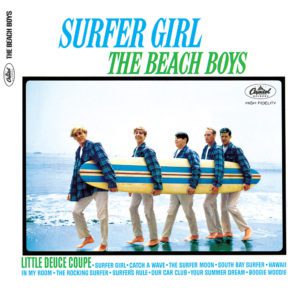
1963, 6.5/10
By the time of The Beach Boys’ third album, Brian Wilson had taken over as the group’s official producer and main writer. Even at this early stage, there are plenty of signs of one of pop music’s most talented individuals. The Wilson-fronted material is already at a high level of sophistication in terms of arrangement and chord sequences, not to mention emotionally poignant. Even if the Love-fronted hits here like ‘Catch A Wave’ and ‘Little Deuce Coupe’ are also strong, they’re tacky and shallow next to Wilson classics like ‘In My Room’ and the title track.
I categorically love all the Wilson-fronted songs here; not only the celebrated title track and the angsty ‘In My Room’, but also the lesser-known ‘Surfer’s Moon’, a beautiful ’50s style ballad with a sweet Brian vocal and orchestration, and the sentimental ‘Your Summer Dream’. Some of the Mike-fronted material is also strong; ‘Little Deuce Coupe’ is deservedly a Beach Boys standard, while ‘Catch A Wave’, ‘Our Car Club’, and ‘Hawaii’ are all pleasant enough.
For a 1963 pop album, that’s actually a pretty good consistency rate; only a pair of pointless instrumentals and the tacky surf songs feel like throwaways.
Little Deuce Coupe
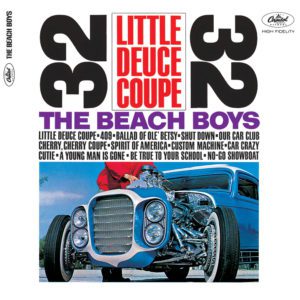
1963, 4.5/10
It says something for the lack of respect for the full length LP as an art form in 1963 that The Beach Boys (or Capitol Records) could get away with such a tacky concept – recycling four songs from previous albums and quickly recording eight new ones to create a hastily constructed car-themed album. Given the song recycling and the somewhat facile theme, Little Deuce Coupe is marginally better I was expecting – at least Roger Christian’s lyrics are an improvement on Mike Love’s.
Out of the new songs, the closest thing to a Beach Boys standard is ‘Be True To Your School’, one of their weaker singles. There is some surprisingly sophisticated and agreeable material tucked away here though; ‘No Go Showboat’ features a great chorus hook, ‘Ballad Of Ole’ Betsy’ is a nice sentimental Brian Wilson ballad, while ‘Custom Machine’ packs a lot of ideas into its one hundred seconds. The a capella ‘A Young Man Is Gone’ turns up in a much more sophisticated form as ‘Their Hearts Were Full Of Spring’ on the Smiley Smile/Wild Honey reissue. Of the recycled songs, ‘Little Deuce Coupe’ and ‘Our Car Club’ are two of the strongest songs here, but the inclusion of the older and more primitive ‘409’ and ‘Shut Down’ only serve to demonstrate the growing sophistication of Brian Wilson’s arrangements and production.
Little Deuce Coupe isn’t that inferior to the albums that surround it, but the crassness of the concept makes it one of the band’s weakest albums. On the positive side, it is an exceptional achievement for an album that reputedly took a day to record and was released a mere month after its predecessor.
Shut Down Volume 2
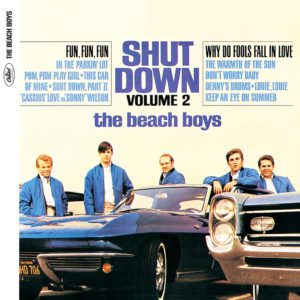
1964, 6/10
As the real followup to Surfer Girl, Shut Down Volume 2 is a wildly uneven effort; a handful of songs are stronger and more intricately arranged than anything The Beach Boys had produced up to this point, but there’s little of note beyond those three or four classics. Presumably forced to come up with ideas quickly by an impatient record label, the group resorted to the following material: (a) a skit, with musical interludes, (b) a Dennis Wilson drum solo, (c) a hackneyed cover of ‘Louie Louie’, (d) a particularly rote car song, and (e) a quickie instrumental. This means that about half the album is obvious and unmitigated filler, with the last quarter of the album almost completely dispensable.
On the other hand, there are three of the Beach Boys’ best-ever tracks here: ‘Fun, Fun, Fun’ is easily one of Mike Love’s best lyrics and most likable vocal performances, where his balding California hunk persona actually adds to the song. ‘Don’t Worry Baby’ is an emotional Wilson-sung ballad with a huge Phil Spector feel, while ‘Warmth Of The Sun’ is the overlooked song here, a devastating breakup song where the sombre mood was supposedly inspired by the Kennedy assassination. Apart from the effective cover of ‘Why Do Fools Fall In Love?’ and the predictable but pleasant, ‘Keep An Eye On Summer’, the other actual songs aren’t substantial.
If you took the best songs from Surfer Girl and Shut Down Volume Two and put them into a single record, there’s potentially a very impressive album from this early era of The Beach Boys.
All Summer Long
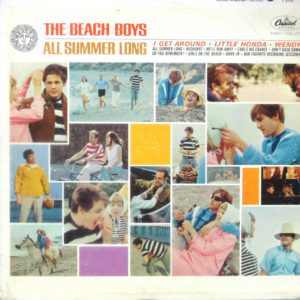
1964, 7.5/10
All Summer Long is the first Beach Boys album that feels somewhat complete; it’s still only 25 minutes long, but there’s lots of substantial material despite only the opening ‘I Get Around’ qualifying as a Beach Boys standard. As Brian Wilson starts to hit his mid-sixties peak, the difference between a very good Beach Boys album and a great one is the balance of the contributions of Love and Wilson, and the reason that Pet Sounds and the second side of Today! stand as the Beach Boys best moments is because they’re where Love stayed out of the limelight.
While the studio bloopers reel of ‘Our Favourite Recording Sessions’ and the guitar solo of ‘Carl’s Big Chance’ are the obvious filler tracks, they’re actually pretty likeable compared to their counterparts on the previous record. It’s the Mike-dominated ‘Drive In’ and the Dick Clark references of ‘Do You Remember’ that are the record’s least endearing aspect. With those out of the way, there’s a lot to enjoy. ‘I Get Around’ may be overplayed, but it’s still a brilliantly propulsive piece of youthful euphoria, while ‘Little Honda’ hits similar territory. Wilson’s romanticism hits hard with the heartfelt ode to elopement ‘We’ll Run Away’ and the beautifully harmonised cover of ‘Hushabye’. While ‘Girls On The Beach’ hits similar territory to ‘Surfer Girl’, it’s a step above, with complex key changes and an effectively wobbly Dennis vocal on the bridge.
All Summer Long has its flaws, but Brian Wilson is reaching for greatness. There are more than enough great moments to compensate for the odd lapse of judgement.
The Beach Boys Today!

1965, 9/10
Brian Wilson stopped touring (he was replaced live temporarily by Glen Campbell, then by future group member Bruce Johnston), becoming a full-time arranger and writer for the group’s studio recordings. 1965’s Today! is often regarded as The Beach Boys’ first masterpiece; it’s full of signs of Brian Wilson’s genius, even if it is a bit rough around the edges. There’s an embryonic version of ‘Help Me Ronda’, a song that would be perfected on their next album, while the album ends in an unsatisfying fashion with the studio chatter of ‘Bull Session With Big Daddy’.
But the stunning focal point of the record is the run of five ballads on the second side, some of the most fully realised pop music ever committed to tape at the time. In terms of expressing emotions, innovative chord progressions and unusual instrumentation, these songs were ground-breaking, bringing a new degree of artistry into a genre that had previously gotten by mostly on pure adrenaline. In particular, ‘Kiss Me Baby’ is a brilliant piece that squeezes a complex structure and raw emotion into a concise and accessible pop song. ‘I’m So Young’, a cover of a fifties doo-wop standard, is less profound, but still showcases the group’s unparalleled harmonies, while ‘Please Let Me Wonder’ and ‘She Knows Me Too Well’ are two more pristine ballads. The glorious sequence ends with ‘In The Back Of My Mind’, where Dennis contributes a slightly shaky vocal that fits perfectly into the song’s ambiguously jazzy groove.
The first side of the record is less startling, but still perfectly solid; ‘Do You Wanna Dance’ and ‘Dance, Dance, Dance’ are both good basic rockers, and the ambitious modulation in the final chorus of ‘Dance, Dance, Dance’ is an example of Wilson’s growing confidence. ‘When I Grow Up (To Be A Man)’ is the first side’s ace; it’s absolutely startling that a 22-year-old could write a piece so mature and so sonically adventurous, totally without precedent in rock music.
If you already love Pet Sounds and want more of the same, Today! is a great place to experience Brian Wilson’s unique musical genius.
Summer Days (And Summer Nights!!!)
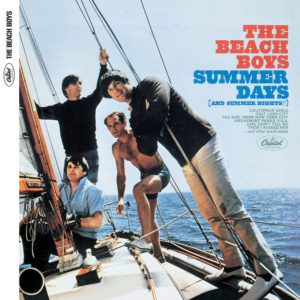
1965, 7/10
After the cohesive album statement of Today!, The Beach Boys lowered their artistic standards with Summer Days (And Summer Nights!!!). Released just months after Today!, it’s a curious mixture. Inconsequential material with bizarre lyrical preoccupations (amusement parks, Salt Lake City) share space with absolutely brilliant pieces of music that were Wilson’s best yet. It seems obvious that Mike Love is the person to blame for dross like ‘The Girl From New York City’, ‘Amusement Parks U.S.A.’ (doing for America’s theme parks what ‘Surfing Safari’ did for her beaches) and ‘Salt Lake City’; no matter how strong Wilson’s melodies and arrangements are, these songs still feel inconsequential. ‘Salt Lake City’ was a deliberate sales pitch to their large fan base in Utah; it’s surprisingly crass even by Love’s standards.
Wilson only gets a handful of lead vocals, including the uncomfortably confessional ‘I’m Bugged At My Ol’ Man’, where he complains of his father’s domination. It’s delivered as comedy, but given Wilson’s real-life situation (his deafness in his left ear was a result of his father punching him) it’s far more macabre than it should be. There’s a fantastic core of four songs in the middle of the album that makes it worthwhile even if the rest is spotty. ‘Girl Don’t Tell Me’ was 19-year-old Carl Wilson’s first lead vocal, and it was long overdue; even in this band of uniformly talented singers, he was arguably the best. The composition is derivative of contemporary Beatles tunes (‘Ticket To Ride’ in particular), but it has a simple grace and chugs along nicely. The finished version of ‘Help Me Rhonda’ is a huge improvement on the Today! version, dispensing with the weird gimmicks, such as the modulating volume on the fade, and providing a classic single. Wilson himself cites the mini-symphonic intro to ‘California Girls’ as his favourite piece of music that he recorded, and it is absolutely gorgeous; a seemingly unrelated piece of orchestration builds perfectly into the song, providing another pop masterpiece. And finally, ‘Let Him Run Wild’ is a ballad that would have fitted perfectly into Today!, and would have been a highlight to boot. Other highlights towards the end of the album include a beautiful orchestral piece, ‘Summer Means New Love’, and the a capella closer ‘And Your Dreams Come True’.
In some ways Summer Days (And Summer Nights!!!) is the quintessential Beach Boys album; it feels summer drenched, while there’s a very tangible sense of Brian Wilson’s genius being dragged down by record company expectations of timely and marketable material and the crassness of Mike Love.
Beach Boys’ Party!
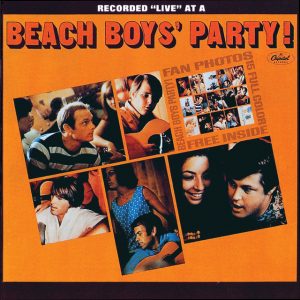
1965, 6.5/10
Even though The Beach Boyd had already released two new albums of material in 1965, Capitol wanted a new record for the Christmas market. The group considered a live album and a compilation but settled on Party!, featuring singalong versions of hit songs from other artists, as well as a couple of their own tracks, accompanying themselves on acoustic guitars and bongos. Audience applause was over-dubbed to make Party sound live. It’s a serviceable concept – The Beach Boys have enough vocal charm and ability to pull it off. But the chatter in between songs is irksome and the simple arrangements don’t hold up to repeated listens – the vocals aren’t intricately arranged like they are on the studio records. It’s an album to stream a couple of times rather than something you’d want to own.
Like most Beach Boys records, the best moments are dominated by the Wilson brothers. Carl and Dennis front Beatles covers – Dennis provides a charming lead on ‘You’ve Got To Hide Your Love Away’, while Carl duets with Jardine on ‘I Should Have Known Better’ and ‘Tell Me Why’. Brian’s in the spotlight for the album’s big hit, a cover of The Regents’ ‘Barbara Ann’ that’s become the song’s definitive version and is one of The Beach Boys’ most recognisable hits. On the other hand, Love’s moments in the spotlight are the album’s low points – he sounds like he’s attempting an Elvis impersonation on the Beach Boy medley and cover of The Hollywood Argyles ‘Alley-Oop’.
Party! is fun, but far aside from ‘Barbara Ann’ it’s far from essential.
Pet Sounds
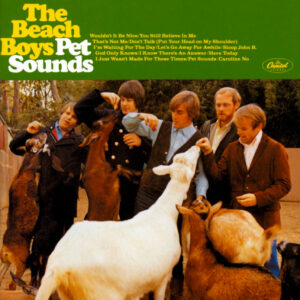
1966, 10/10
Brian Wilson’s magnum opus, Pet Sounds mixed introspective lyrics with innovative instrumentation and Spector-inspired recording techniques and topped them off with The Beach Boys’ lush harmonies. There are a couple of bright poppy songs on Pet Sounds that smell like concessions to record company demands for singles – ‘Wouldn’t It Be Nice’ and ‘Sloop John B’, both among their most famous songs – but the rest of Pet Sounds is moodier and subtler. ‘I’m Waiting For The Day’ and ‘Here Today’ are stuffed with melodies and hooks and work perfectly as pop songs accordingly, but they’re also far more layered; there is a lot of innovative orchestration and sound-scaping, with Wilson employing unlikely instruments such as Coke cans (which provide percussion on the title track) and an early appearance of the Theremin.
Although Wilson collaborated with lyricist Tony Asher, there’s a definite sense that Asher was only helping Wilson to express his innermost emotions; although all of The Beach Boys are vocally present, Brian takes most of the lead vocals. The notable exception is the key ballad ‘God Only Knows’, a beautiful spotlight for Carl Wilson, but it’s the resignation of ‘I Just Wasn’t Made For These Times’ that is Brian’s definitive statement. Pet Sounds also features a pair of memorable instrumentals, particularly the superb ‘Let’s Go Away For Awhile’, and closes with a perfect, soaring ballad ‘Caroline No’.
Pet Sounds has a mysterious beauty that places it above criticism, and if you have any interest in pop music you need this album, even if it takes a few years to sink in.
The Smile Sessions
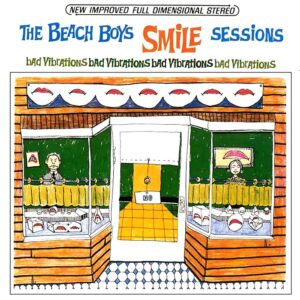
2011 (recorded 1966-7), 9/10
Brian Wilson famously aborted the Smile album, and it was never released, other than the huge advance single ‘Good Vibrations’. Pressure from within the band and other personal problems caused him to scrap the project, and it was never completed. The Smile Sessions is a 2011 recreation of the album from archival tapes, based on Wilson’s 2004 Smile album. It’s not an album of songs like Pet Sounds; out of the 19 tracks, only about ten are actual songs. The Smile Sessions is structured somewhat like a symphony into three movements, and many of the remaining tracks are link tracks or repetitions of lyrical and musical motifs.
Most of the major songs like ‘Good Vibrations’, ‘Heroes and Villains’, ‘Surf’s Up’, and ‘Cabinessence’ all appeared on subsequent Beach Boys albums – the only major song that didn’t appear on a studio album previously is ‘Roll Plymouth Rock’/’Do You Like Worms’. ‘Surf’s Up’ features a Brian lead vocal instead of the Carl one featured on the 1971 album.
While bootlegs of Smile have floated around for years, the one I have is longer and less organised than this, and while Brian Wilson’s solo version is excellent, it’s lacking the vocals of the other Beach Boys and Wilson’s voice has lost its range. So The Smile Sessions should be recognised as the definitive version of Smile.
Smiley Smile
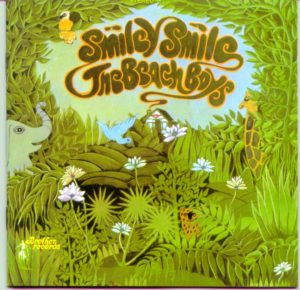
1967, 6.5/10
Smiley Smile was famously summarised by Carl Wilson as a bunt rather than a grand slam, and it’s an accurate description; there’s nothing notable on Smiley Smile that wasn’t originally from the abandoned Smile project. Take away the key Smile tracks, ‘Good Vibrations’ and ‘Heroes And Villains’, that open each side of Smiley Smile, and there’s little of consequence remaining.
The presence of ‘Good Vibrations’ alone, however, is enough to ensure that the album is important – taking six months to create, it might be Wilson’s single greatest achievement, which is saying a lot. The theremin, the vocal breaks – it’s so catchy and ubiquitous that it’s easy to forget how eccentric and ambitious it really is. The short length of ‘Heroes And Villains’ makes its complexity deceptive – conciseness was one of Wilson’s greatest virtues, even on the ambitious pieces of Smile. Of the other Smile outtakes, ‘Fall Breaks and Back To Winter’ is a watered version of the fire suite from Smile, while the potentially gorgeous ‘Wonderful’ breaks down into doo-wop, while it’s also one of the several tracks that almost collapses into laughter – a manifestation of the stoned ambience that pervades the album. The new songs for the album are sometimes ridiculous – ‘She’s Going Bald’ and ‘Little Pad’ both have their cringe-worthy moments.
Some fans do regard Smiley Smile as a minor masterpiece, and I guess it is possible to argue this – it’s certainly different than anything else that The Beach Boys ever made, the combination of mostly sophisticated compositions and mostly loose atmosphere making it a unique statement, and a contrast to Wilson’s carefully arranged studio craft. But coming from the perspective of hearing more coherent versions of Smile first, Smiley Smile is a waste of potential, despite how bizarrely charming it is in places.
Wild Honey
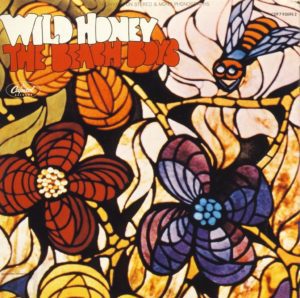
1967, 7.5/10
After the unsatisfying Smiley Smile, The Beach Boys returned with simpler and more direct songs. Most of the instrumentation is supplied by the group themselves, and most of the tracks falling into hitherto unexplored acoustic pop or enthusiastically sung white soul. Some of the tracks even dispense with the signature five-part harmonies, often leaving Carl as the group’s lead vocalist without any backing vocals at all. While Wild Honey is one of The Beach Boys’ least characteristic albums, it’s one of their most consistent efforts.
The standout song here is ‘Darlin”, one of the group’s best A-sides and originally written by Brian back in 1963. With its full-bodied arrangement and horn section it does sit away apart from the rest of the record. The opening title track even stakes a claim for hipness, with its trippy mellotron riff and gritty vocal from Carl. The cover of Stevie Wonder’s ‘I Was Made To Love Her’, again features Carl Wilson’s enthusiastic singing, while Brian’s charmingly low key ‘I’d Love Just Once To See You’ is another winner. In fact, Wild Honey might be the most consistent Beach Boys album outside of Pet Sounds with no major clunkers, and packed with winners like the funky ‘How She Boogalooed It’ and the gorgeous ‘Country Air’ and ‘Let The Wind Blow’. It does finish on a slightly weird note with ‘Mama Says’, an a capella segment from ‘Vegetables’ from Smile.
Wild Honey is too insubstantial to warrant an especially high rating, due to both its short length and lack of major compositions, but it’s consistently enjoyable nonetheless.
Friends
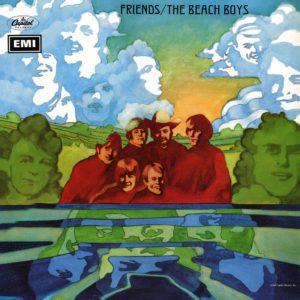
1968, 6/10
Friends captures a gentleness from Brian Wilson, making it one of the last Beach Boys albums dominated by his vision. There are two different schools of thought about this album – either it’s one of the most coherent and unified albums in The Beach Boys catalogue, full of charm and melody, or it’s relatively lightweight and insubstantial. I’m part of the second camp; while Beach Boys’ strengths like warm vocals and strong melodies are present here, so are weaknesses like ridiculous lyrics (‘Anna Lee, The Healer’), and no single song individually measures up among the group’s best.
As such, it’s hard to pick out the key tracks on Friends; the Carl Wilson-sung title track was chosen as the single, but it stalled at #47, the worst charting Beach Boys single since 1962, perhaps due to its unconventional waltz feel. Brian and Carl share lead vocals on ‘Wake The World’ and ‘Be Here In The Morning’, two of the more substantial tracks on the record. The emergence of Dennis Wilson as a writer is easily the most interesting aspect of this record; while his material isn’t particularly ambitious, his emotional voice makes ‘Be Still’ and ‘Little Bird’ the most meaningful and resonant songs on the album, admittedly not a difficult feat when Brian is busy writing about his uncrowded personal schedule (‘Busy Doin’ Nothin’) and Mike about his masseuse (‘Anna Lee, The Healer’).
Friends has a consistent sound and a quaint charm to recommend it, but it’s largely unsatisfying; the product of one of pop music’s most talented figures unwilling or unable to challenge himself any further and settling down into a predictable routine.
20/20
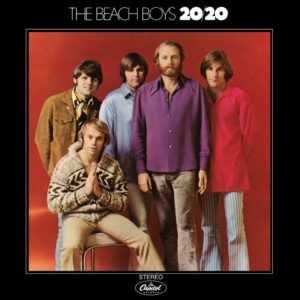
1969, 7/10
Album is possibly too generous a term for this haphazard collection of Beach Boys leftovers. With Brian no longer dominating the group, and only contributing a handful of songs, the other members start contributing, and the results are accordingly varied. It’s all but impossible to make generalisations about 20/20, as it’s extremely eclectic and extremely inconsistent, ranging from tacky hard rock and lounge music to surf-era throwbacks and ambitious mini-epics.
The worst offenders include Bruce Johnston’s contributions – a middle of the road cover ‘Bluebirds Over The Mountain’, with completely inappropriate hard rock guitar, and his easy listening instrumental ‘The Nearest Faraway Place. Other substandard efforts include a raunchy Dennis Wilson rocker ‘All I Want To Do’, featuring noises of its creator copulating and a boring Friends outtake ‘I Went To Sleep’. Countering this is strong material like the surfing themed single ‘Do It Again’, which recaptures the magic of their early singles while infusing the group’s improved sophistication and studio skill with touches like the self-referential lyrics and the complex vocals on the chorus. Carl contributes the Phil Spector cover ‘I Can Hear Music’, producing for the first time and highlighting his gorgeous lead vocal. Dennis shows increasing sophistication with his ballad ‘Be With Me’, while he’s also given credit for the controversial Charles Manson collaboration ‘Never Learn Not To Love’ (originally titled ‘Cease To Exist’). There’s a fantastic new Brian song, ‘Time To Get Alone’, but the album’s largely overshadowed by the stunning final songs, salvaged from Smile; the wordless a capella ‘Our Prayer’ and the mini-epic ‘Cabinessence’.
It’s difficult to rate 20/20, but there’s certainly enough interesting music to make it worth an examination.
Sunflower
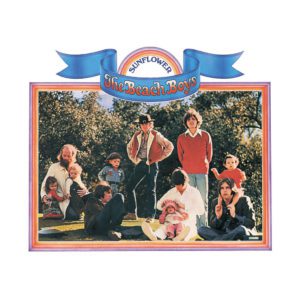
1970, 8/10
Sunflower attempted to relaunch The Beach Boys to commercial success on a new record label. The attempt failed, as the group failed to reenter the mainstream, but it’s not due to the quality of the music, which is strong. The group is more democratic than ever with all of the members contributing material and taking lead vocals. Don’t go in expecting the same depth of emotion as Pet Sounds – perhaps Sunflower‘s greatest flaw is a lightweight aura – but it’s consistently well crafted pop music.
‘Forever’ is a gorgeous Dennis Wilson contribution, a dramatic contrast with the gritty and insincere seduction of ‘Gotta Know The Woman’, laden with those trademark harmonies. ‘All I Wanna Do’ is another beautiful piece, with vocals floating amidst a dense bed of organ. Bruce Johnston turns up the melodrama too far with ‘Tears In The Morning’, but his collaboration with Brian on ‘Deidre’ might be the best song on the entire album, a fifties throwback that effortlessly flows into a lilting chorus. Dennis provides the counterpoint with more soulful, less profound efforts; ‘Slip On Through’, ‘Gotta Know The Woman’ and ‘It’s About Time’ all provide energy and even occasional humour. The only significant misstep is ‘At My Window’, with sappy lyrics and a Spanish spoken interlude. Brian’s material doesn’t rank with his very best, but it’s still worthwhile; the multi-part ‘This Whole World’ and the soothing closer ‘Cool, Cool Water’ are both intriguing.
It might not be the Beach Boys’ most profound statement, and you need to leave your cynicism at the door, but Sunflower is always heartwarming and pleasurable.
Surf’s Up
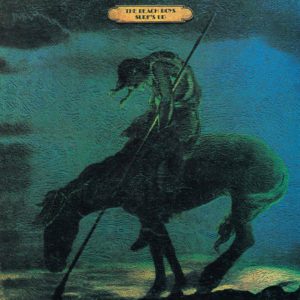
1971, 8/10
After the collaborative optimism of Sunflower bombed commercially, The Beach Boys created Surf’s Up; a more disjointed and darker effort. Dennis contributes no songs and, while Brian contributes material, he has less impact on the record as a whole, and the album is much more uneven, with material of varying quality contributed by the different band members.
The absolute low point is ‘Student Demonstration Time’, a politically aware Mike Love composition with a rote musical backing. The opening line “I do them when I’m down in the tub/With avocado cream they’ll take a rub” is enough to sabotage any pretence at seriousness on ‘Take A Load Off Your Feet’, while Brian’s ‘A Day In The Life of a Tree’, with manager Jack Rieley on lead vocals, is heartfelt but bizarre. Johnston’s nostalgic ‘Disney Girls (1957)’ could have come straight off Sunflower, but it would have been a highlight of the record. Carl’s first serious efforts at writing, ‘Long Promised Road’ and ‘Feel Flows’, are both absolutely gorgeous; the former with a beautiful bridge, the latter with stream of consciousness lyrics and an ambient atmosphere. Most stunning of all are Brian’s two closing compositions; ”Til I Die’ is a simple and brutally effective reflection on mortality (“I’m a rock in a landslide/Rolling over the mountainside/How deep is the valley/It kills my soul”). ‘Surf’s Up’, a leftover from 1966’s legendary Smile sessions, features one of the most amazing melodies penned by mortal man, the initial section ascending to heaven delivering Van Dyke Park’s impressionist lyrics and Carl’s vocal, before falling into delicate introspection.
Surf’s Up may be frustratingly inconsistent, but the best songs are so amazing that anyone interested in Brian Wilson’s work will need to hear it.
Carl and the Passions
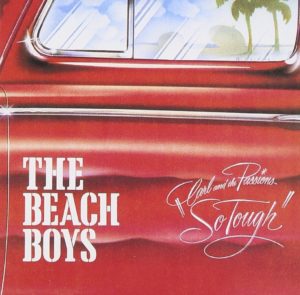
1972, 5.5/10
Bruce Johnston left the Beach Boys during the sessions for Carl and the Passions, and Carl Wilson bought in two South African musicians to beef up the live shows. Drummer Ricky Fataar was bought in to cover for Dennis Wilson’s hand injury, while Blondie Chaplin was bought in as a third guitarist and vocalist. With the new members and little input from Brian, Carl and the Passions pulls in a lot of directions over its 34 minute running time and feels thin and disparate.
Chaplin and Fataar provide two tracks that don’t feel like they belong to the band, of which ‘Hold On Dear Brother’ is straight out monotonous. Dennis contributes two orchestrated ballads, which again don’t feel aligned with the other tracks, even though ‘Cuddle Up’ in particular is strong. There’s also a gospel pastiche in ‘He Come Down’, which has a strong vocal arrangement, but which is a theological hodgepodge, referencing Jesus, Maharishi, and Krishna in succession. There are some very good songs among the mess; namely, the beautiful Carl fronted ‘All This Is That’, and Brian’s 1950s throwback ‘Marcella’.
There’s enough to make Carl and the Passions worth hearing, but it’s definitely one of The Beach Boys’ more disposable efforts.
Holland
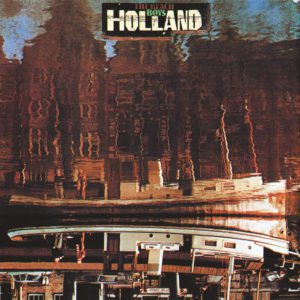
1973, 7.5/10
In an effort to refocus, The Beach Boys were sent to the Netherlands to record. Brian was in a fragile mental state, obsessively listening to Randy Newman’s masterpiece Sail Away, and his two songs were tacked onto the album later. Like Sunflower, Holland is a successful democratic album with everyone contributing competent material; even Mike Love writes a likeable song in ‘Big Sur’ and the Chaplin and Fataar contribution ‘Leaving This Town’ fits in fine.
Carl contributes the album’s strongest piece, ‘Trader’, but the album would still feel thin without the Brian contributions that bookend it. The opening ‘Sail on Sailor’ sounds slightly atypical, but that’s mainly because of Blondie Chaplin’s lead vocal – otherwise, it’s a sophisticated and mature classic. ‘Funky Pretty’ closes the album with another high point, with its energetic harmonies.
Holland is a surprisingly strong last gasp effort from The Beach Boys, and it marks the end of an era; due to the success of the compilation Endless Summer, their next record would be much more nostalgic.
15 Big Ones
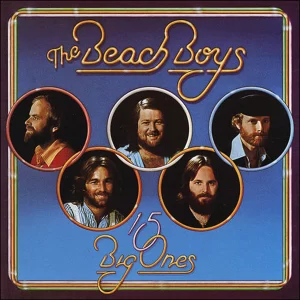
1976, 4.5/10
The Beach Boys surged back into cultural relevance in 1974 The double LP compilation Endless Summer, chronicling their 1962-1965 era, became massively successful, topping the US charts and selling three million copies. The group were divided on how to capitalise on their regained momentum – Carl and Dennis wanted to keep writing originals, while Al and Mike wished to release a quick oldies album. The resulting album is a little of both, mixing 1950s throwbacks with light-hearted originals. Complicating matters, Brian Wilson was more involved with this record despite worsening mental health – he receives a producer credit for the first time since Pet Sounds. Chaplin and Fataar had both left The Beach Boys, leaving them with the same lineup that recorded much of the Endless Summer material.
There are some enjoyable original songs to be found on 15 Big Ones, albeit on the lighter side – Jardine’s ‘Susie Cincinatti’ is a tuneful leftover from the Sunflower era. Brian and Mike’s ‘It’s O.K.’ recalls ‘Do It Again’, while ‘Had To Phone Ya’ revisits the frothy sound of Friends. The covers largely sound superfluous, although I like Dennis’ spotlight on ‘In The Still of the Night’.
15 Big Ones is disappointing after the group’s strong run of records in the early 1970s, unambitious and mundane.
The Beach Boys Love You
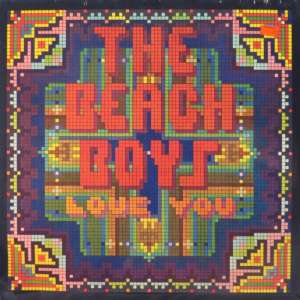
1977, 7.5/10
After the retro, cover heavy 15 Big Ones, Brian Wilson took The Beach Boys in a different direction with Love You. It was initially intended as a solo project for Wilson, but ended up bearing The Beach Boys name. It’s dominated, however by Brian, who provides most of the songs, lead vocals, and instrumentation. In contrast with the complex harmonies and studio arrangements of most Beach Boys work, it’s stripped back, mostly featuring Wilson’s lead vocals unaccompanied by the other Beach Boys, backed with synthesisers. It’s a different animal than The Beach Boys’ other work, often compelling as an insight into Wilson’s troubled mind. Wilson was in the hands of Eugene Landy at the time, who would reportedly stand over Wilson with a baseball bat to further his “creative inspiration.”
Despite the material being less ornate than Wilson’s peak era work, the songs are often compelling enough to make Love You a worthwhile entry in their catalogue. A lot of the effectiveness comes from the seemingly artless juxtaposition between soul-baring fare like ‘I’ll Bet He’s Nice’ and ‘Love Is A Woman’, and light-hearted pieces that run the gamut from the silly ‘Ding Dang’ to the creepy ‘Roller Skating Woman’. Wilson duets with his then-wife Marilyn on ‘Let’s Put Our Hearts Together’, while ‘Good Time’ is recycled from a Spring album.
Love You is a fascinating record – Wilson making worthwhile music without his signature sophisticated harmonies and studio wizardry.
Adult/Child
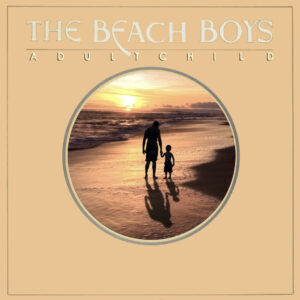
1977 (unreleased), 8/10
Five days after completing Love You, Wilson was back in the studio crafting its follow-up. Adult/Child is very much in the vein of Love You, a Brian dominated album that is focused on personal songs, but instead of the synthesizer-driven arrangements of Love You, a lot of these songs have big-band-style arrangements or strings. The other Beach Boys are more involved on this project with all five taking lead vocals. The album also features three covers, most notably Brian’s pet favourite ‘Shortenin’ Bread’.
Adult/Child was never officially released and is only available in bootleg form, but it’s very much a continuation of the vibe from Love You; if anything I prefer it with its increased variety in arrangements and lead vocals. There’s more gorgeous material like a beautiful Carl vocal on ‘It’s Over Now’ and the wistful ‘Still I Dream Of It’. Most arresting is the big band material – the swinging opener ‘Life Is For The Living’ sounds nothing like The Beach Boys, even if the couplet “Don’t sit around on your ass/Smokin’ grass” is very Brian. Jardine’s take on ‘On Broadway’ is merely competent, but ‘Shortenin’ Bread’ is effectively transformed into a Beach Boys song, and ‘Deep Purple’ is pretty with Carl singing.
Unfortunately, Adult/Child has never been officially released. It’s strange but less so than Love You, and it deserves official release.
M.I.U. Album
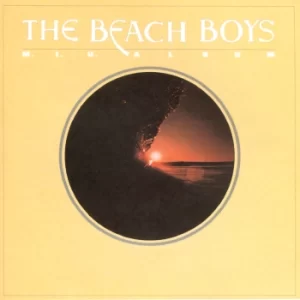
1978, 4.5/10
Because their label refused to release Adult/Child, the band had to quickly scramble for a replacement. As they’d done with Holland, they chose to record in a distraction-free environment. in order to deal with the members’ substance abuse issues, they chose Maharishi International University in Iowa. Affronted by this choice, Carl and Dennis largely refused to participate, while Brian claims to not remember the sessions.
As a result, the record is dominated by Love and Jardine. As always, the quality of a Beach Boys album is determined by the level of Wilson-involvement, and this is their weakest record of the 1970s. There are irredeemably tacky Love tracks like ‘Matchpoint of Our Love’ and ‘Belles of Paris’. Jardine’s take on Buddy Holly’s ‘Peggy Sue’ is in better taste, but still redundant. There are a couple of strong Wilson tracks that prevent M.I.U. from total washout. ‘Hey Little Tomboy’ is salvaged from Adult/Child, and it’s creepy but interesting. Buried amidst a pile of generic songs ‘My Diane’ is a surprisingly strong, reportedly detailing Brian’s affair with his sister-in-law and delivered emotively by Dennis.
M.I.U. is misguided, but make sure you hear ‘My Diane’.
L.A. (Light Album)
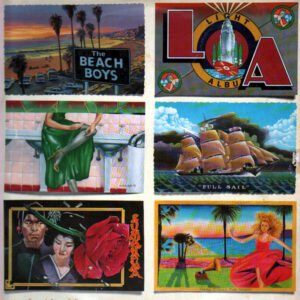
1979, 6.5/10
Bruce Johnston returned to The Beach Boys for L.A., as Brian was too dysfunctional to participate and barely appears. Johnston takes production duties along with Chicago producer James William Guercio, and perhaps unsurprisingly L.A. has a soft rock sheen that can be distracting. Like 20/20 a decade earlier, it’s a hodgepodge of whatever the group had available.
There’s one flat out disaster, an eleven-minute recasting of ‘Here Comes The Night’ from Wild Honey into a disco piece, simultaneously monotonous and embarrassing. Mike Love’s Japanese flavoured ‘Sumahama’ is a little awkward, while Al Jardine’s Bach lift on ‘Lady Lynda’ is schmaltzy but an effective platform for the group’s harmonies. But the rest of the record is Wilson dominated – Brian and Carl’s ‘Good Timin” opens the album and its arguably the most effortless the group sounded all decade with its uplifting melody and warm harmonies. Dennis contributed a couple of songs that he was working on for his aborted solo album Bambu, which are both strong, while Carl’s material is generally sedate and pretty, especially the heartbroken ‘Angel Come Home’.
Like a lot of weaker Beach Boys albums, L.A. is a discombobulating mixture of whatever the group had on hand at the time, but there’s some strong work here.
The Beach Boys released a few more albums after this, but I’ve little interest in their later work. I have covered Dennis and Brian’s solo albums on a seperate page.
Ten Best Beach Boys Songs
Back to 1960s album reviews…..
7 Comments
Leave a Reply
Related Pages
About
Aphoristic Album Reviews is almost entirely written by one person. It features album reviews and blog posts across a growing spectrum of popular music.
Review Pages
Read about the discographies of musical acts from the 1960s to the present day. Browse this site's review archives or enjoy these random selections:
Blog Posts
I add new blog posts to this website every week. Browse the archives or enjoy these random selections:
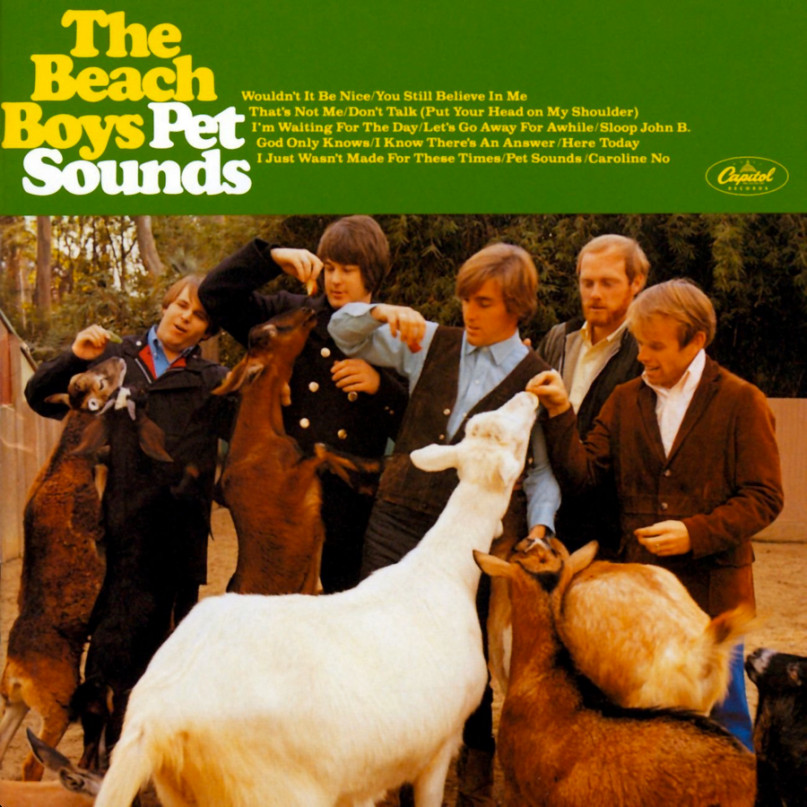
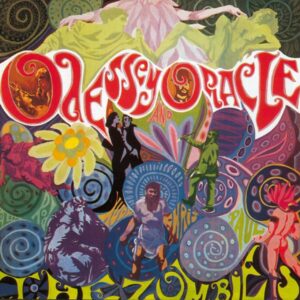
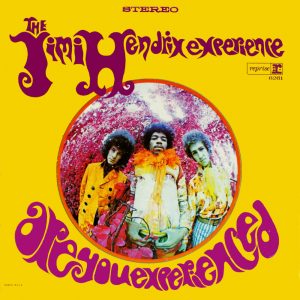
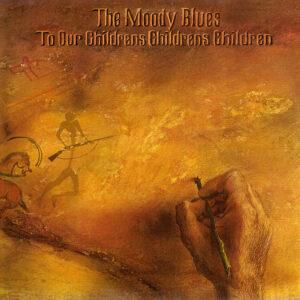
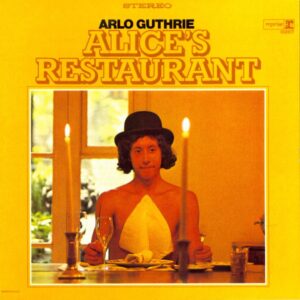
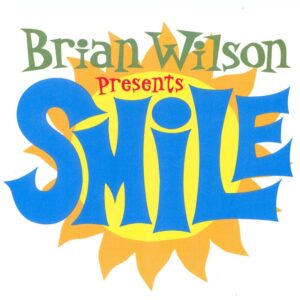
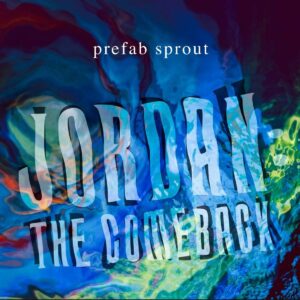
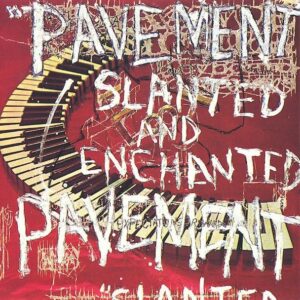
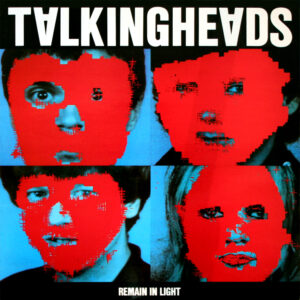

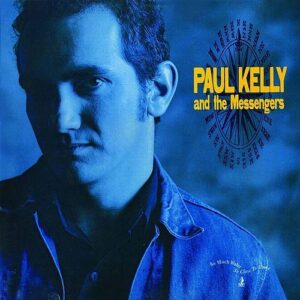
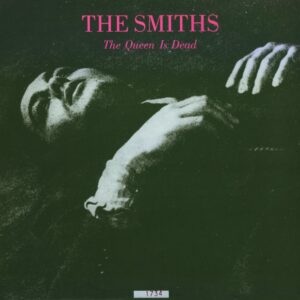
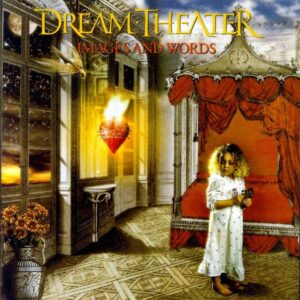
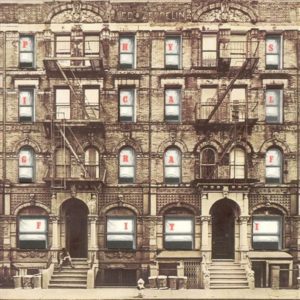
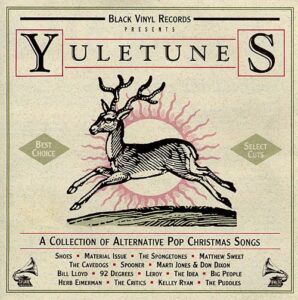
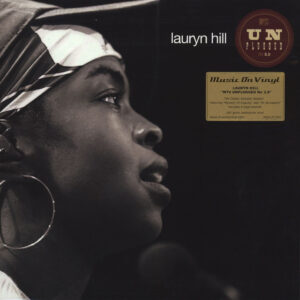
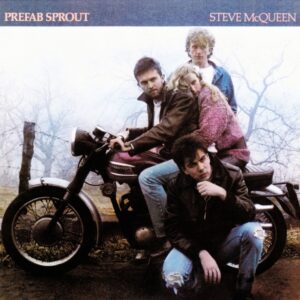




I wouldn’t disagree with much of this. 20/20 is the only one that jumps out at me, as I reckon that one is, at most, a 5 – I certainly prefer Friends, Smiley Smile, and, quite possibly Carl and the Passions over it. That being said, I haven’t listened to it (and some of the others for about 15 years or so).
When I first started buying the albums – after discovering and obsessing over Pet Sounds about 20 years ago – I would look for Brian, Dennis, and Carl’s contributions. I guess that kinda influences which are my favourites.
My own top 5 (if you are interested): Pet Sounds, Sunflower, Today!, Wild Honey, and Smiley Smile. I don’t really look at the Smile Sessions as an album,though… I guess cause it’s always remained largely unfinished.
Your top 5 looks pretty similar to mine. I’d definitely have Today and Pet Sounds, and probably Sunflower, and it would depend if I count Smile Sessions as an album or not.
20/20 does have those two amazing Smile outtakes at the end – without them it would be a lot weaker.
I think it’s fair to say that the Wilsons are the three most talented in the band.
Top 10 songs
Sail On Sailor
Sloop John B
Do It Again
In My Room
Good Vibrations
Wild Honey
Good Timing
Don’t Worry Baby
Wouldn’t It Be Nice
Fun Fun Fun
I Can Hear Music
Some of the later albums get panned but they’re not that bad. 15 Big Ones is ok, Love You is Brian’s anti-Pet Sounds and a lot of fun. So Tough is better than reviewed and I like parts of L.A. Album.
Favorite albums:
Surf’s Up
Pet Sounds
Holland
Sunflower
Today
Favorite songs
Our Prayer
Til I Die
Don’t Worry Baby
You Still Believe in Me
God Only Knows
Sloop John
Surfer Girl
Long Promised Road
Sail on Sailor
Funky Pretty
Only With You
I like the Beach Boys even better than The Beatles
Thanks for writing in. I should really dive in and cover the gaps sometime – although I’m not looking forward to Summer in Paradise.
No, don’t bother on Summer. in Paradise. Keeping the Summer Alive is decent, as are L.A. Album and M.I.A I mean, none of them equal Surf’s Up, Sunflower or “Brian” albums from the “hits” era like Today, so it’s hard to care about ok when you’ve got great around the corner. Holland is the last great BB album. Did you know that Sean Lennon and Elvis Costello name the Beach Boys as one of their favorite bands? The problem within the band was the perennial tension between Mike and the record company, who never wanted to abandon fun in the sun, and Brian who wanted to grow artistically. As much as it’s lauded today, Smile would not have been understood in 1967 by 90 percent of their fans, let alone casual listeners, radio stations, so on. Most fans didn’t get Smiley Smile and it is often cited as the group’s worst effort, which is far from true.
I’ve covered L.A. (Light Album) already. Only a few to go really. I don’t think Smiley Smile is the worst, but it’s pretty disappointing apart from the two big songs.